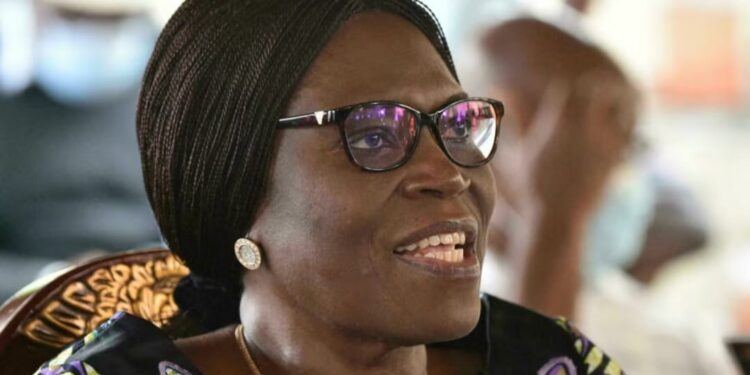By Janet Sankale
The African Francophone Coalitions for the International Criminal Court have asked the government of Ivory Coast to open investigations into the violence of 2010-2011 and ensure justice and reparations for the victims, and avoid recidivism.
Its press release,issuedafter the ICC lifted an arrest warrant against former Ivorian First Lady Simone Gbagbo, stated that “these acquittals should not make us forget the thousands of victims of the Ivorian crisis who need justice and reparations”.
The press release dated August 2, 2021 and signed by seven coalition members – Burundi, Central African Republic, Guinea, Ivory Coast, Mali, Chad, and Morocco – cites the acquittal of former Ivorian president Laurent Gbagbo and his co-accused, Charles Blé Goudé, and asks that the victims not be sacrificed in the international judicial process.
“The ICC would benefit from not giving false hope to victims of serious crimes. It must give confidence to victims through credible investigations and decisions that take into account their interests,” said Ali Ouattara, the group’s coordinator.
On July 29, 2021, the ICC approved the Prosecutor’s request to cancel the arrest warrant against Ms Simone Gbagbo. The court had been seeking to have her stand trial as an indirect co-perpetrator of her husband, Laurent , for four counts of crimes against humanity allegedly committed during post-electoral violence in Ivory Coast between December 16, 2010, and April 12, 2011.
The violence erupted when Laurent Gbagbo rejected the results of the November 2010 presidential elections and refused to concede defeat to opposition leader Alassane Ouattara. International observers, including the United Nations, endorsed Ouattara’s win. However, Gbagbo, who had the support of the country’s military, had himself sworn in for another term.
The resulting political tension quickly escalated into violent confrontations between the supporters of Gbagbo and Ouattara. Numerous human rights abuses, including murder, rape, and torture, were allegedly committed by both sides. More than 3,000 people are suspected to have been killed in the violence.
After several months of fighting, Gbagbo was arrested with the help of French forces. Ouattara was sworn in as president in May 2011 and his administration focused on ending the fighting and restoring order. His government agreed to investigate criminal acts and human rights abuses allegedly committed by both sides and created the Special Investigations Unit for that purpose.
However, the unit, which was in 2014 replaced by the permanent Special Investigation and Examination Unit, has been accused of being politically-motivated and biased, and failing to take any action against any pro-Ouattara forces, although both sides have been accused of committing atrocities.
The government also set up the Commission for Dialogue, Truth and Reconciliation, as well as the National Committee for Reconciliation and Victims’ Compensation and the Ministry of Solidarity, Social Cohesion and Victims’ Compensation. The Human Rights Council also set up a commission of inquiry to investigate the allegations of abuse.
Ouattara invited the International Criminal Court to prosecute any crimes in its jurisdiction committed during the post-election violence and on November 23, 2011, the ICC issued a warrant of arrest against Gbagbo. He was charged together with Blé Goudé, a former youth militia. However, they were acquitted in January 2019. The Prosecutor appealed the acquittal, but the Appeals Chamber upheld the ruling in March 2021. This was a big blow to victims and closed another door for redress for the 727 who participated in the case at the ICC.
The ruling withdrawing the arrest warrant against Ms Gbagbo said the evidence against her had been reviewed in light of the acquittal of her husband Laurent for similar charges, where both the Trial Chamber and the Appeals Chamber had found that the evidence adduced by the Prosecution did not meet the necessary threshold of “guilty beyond reasonable doubt”.
Ms Gbagbo was convicted domestically for undermining state security, disturbing public order, and organising armed gangs, and was sentenced to 20 years in prison in 2015. She was released in 2018 when President Ouattara set free 800 prisoners as part of a broader effort to ensure reconciliation in the country.
.







